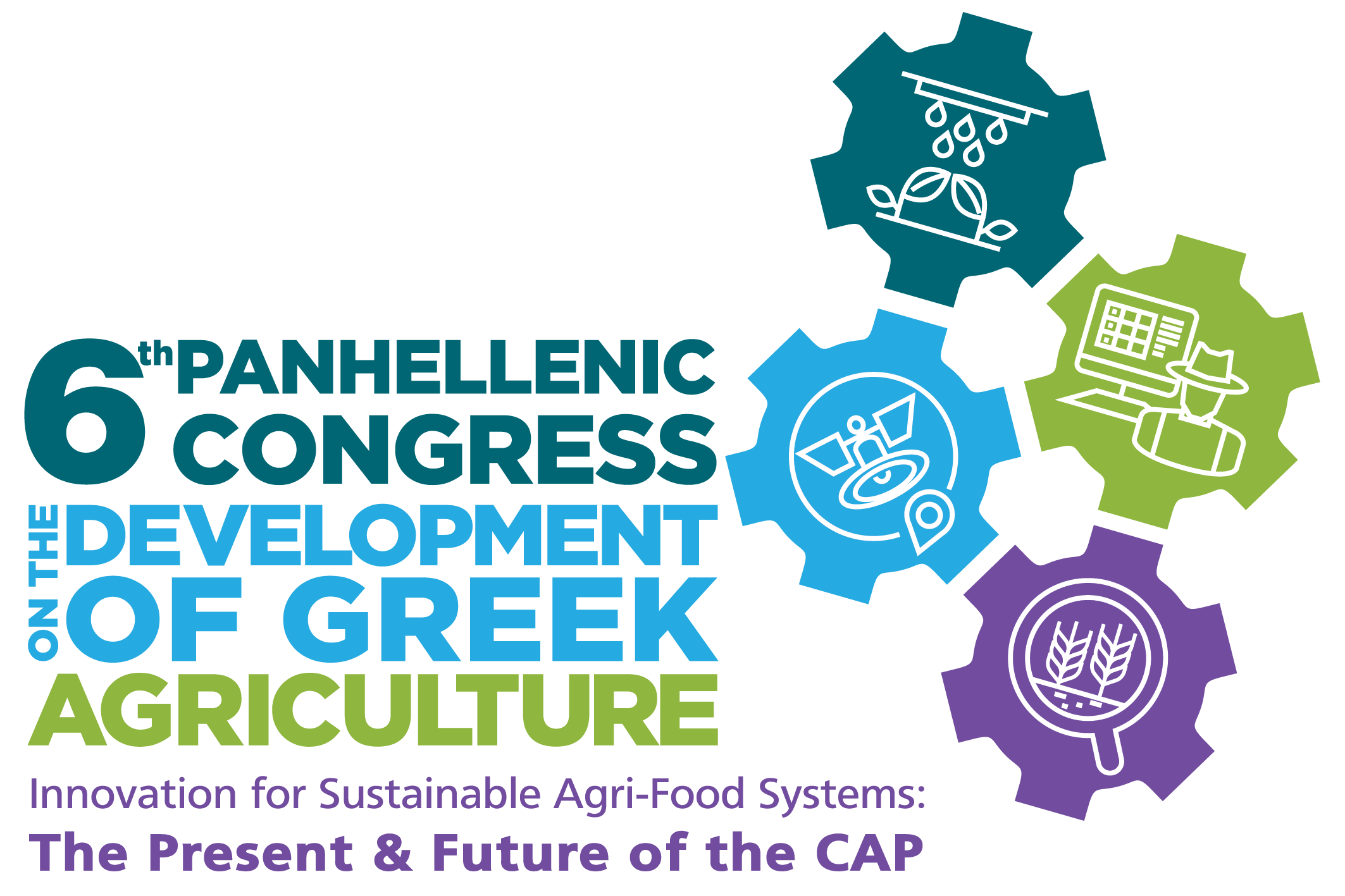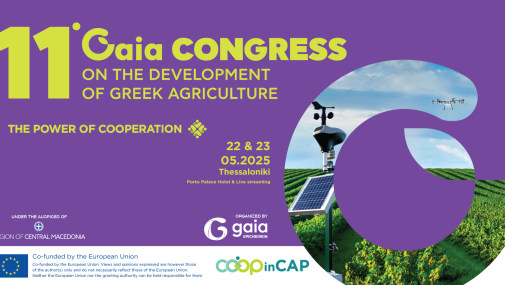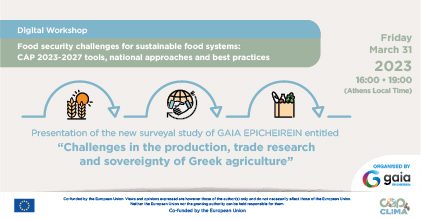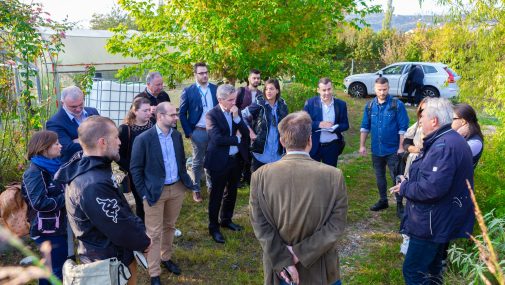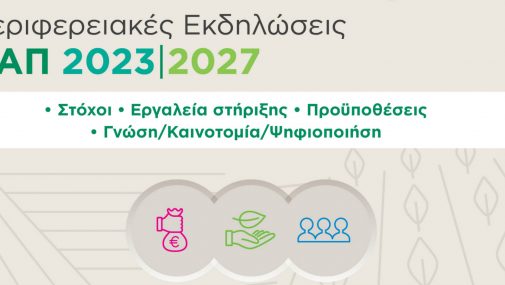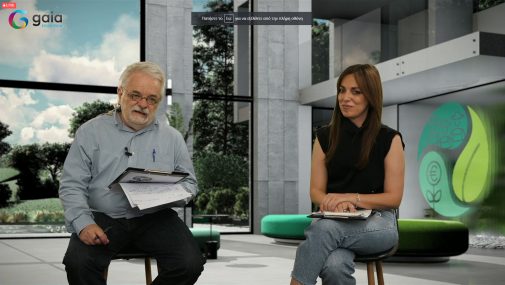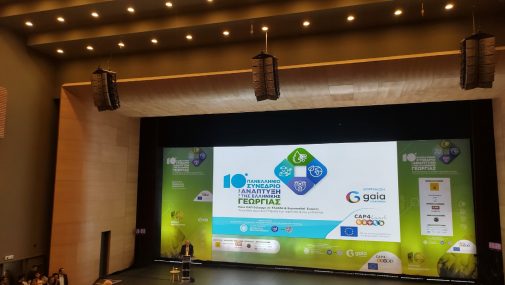This website uses cookies so that we can provide you with the best user experience possible. Cookie information is stored in your browser and performs functions such as recognising you when you return to our website and helping our team to understand which sections of the website you find most interesting and useful.
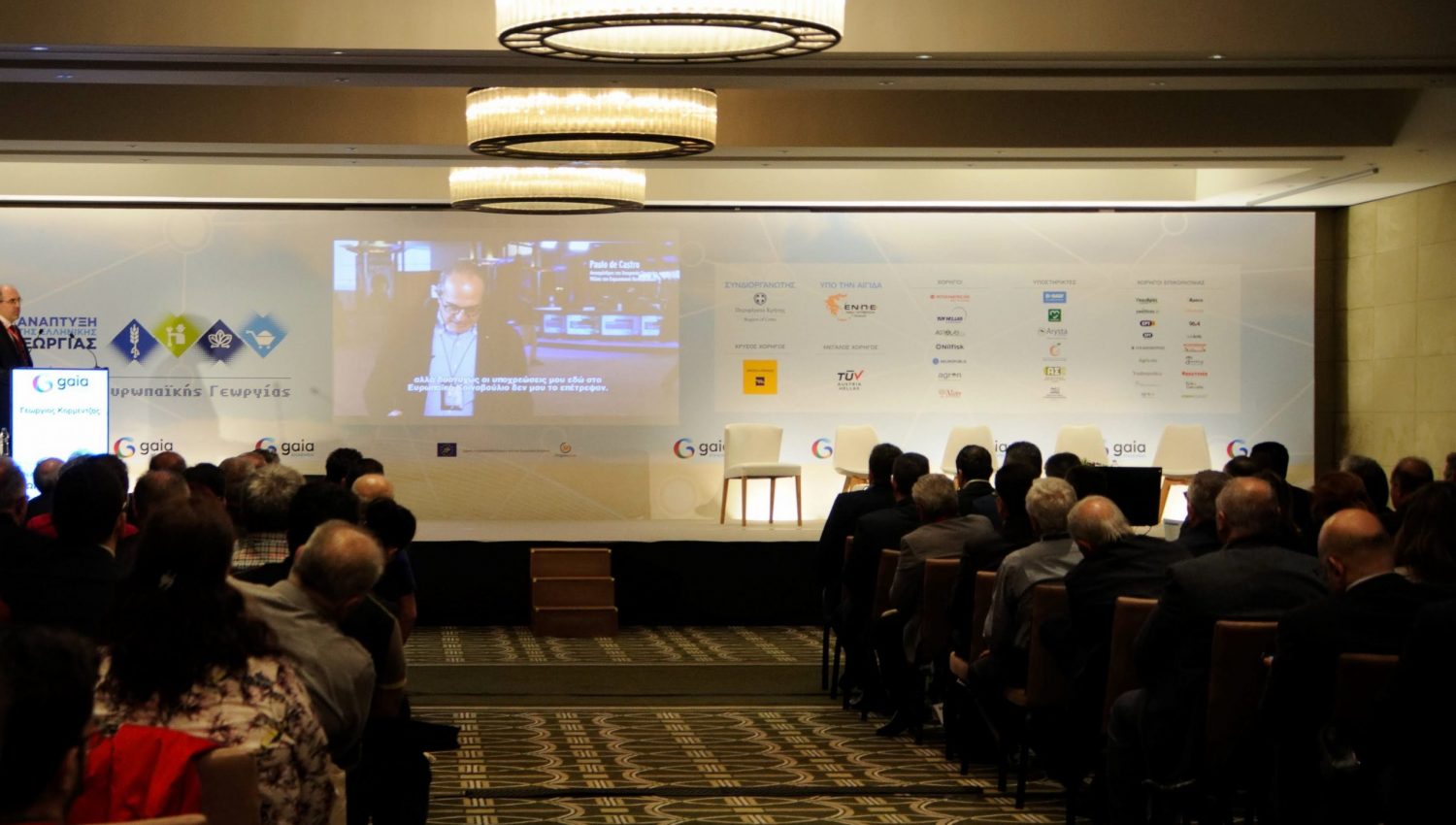
The works of the 5thPanhellenic Congress on the Development of Greek Agriculture were completed today, on 25 October 2018 in Heraklion, Crete, on the subject of: ‘Digitisation: The Future of the EU Agricultural Sector’. The packed congress hall of Candia Maris Resort & Spa clearly proved the intense interest of the agricultural sector to receive information, hear and learn about what to expect from the digital agricultural landscape of the future, thus confirming that it is not by chance that Crete has a unique position in Greece’s productive sector.
There were extensive references during the congress to the opportunities for the agricultural sector in relation to digitisation, the role of the CAP, and the plan to restructure the national primary sector in future terms. The congress opened with the video messages by Mr Joachim Rukwied and Mr Thomas Magnusson, presidents of COPA and COGECA respectively, both stressing that “this congress is important for the discussion on the future of agriculture in Greece and in Europe”.
The Governor of Crete, Mr Stavros Arnaoutakis, stressed during his speech that “the 5thPanhellenic Congress by GAIA EPICHEIREIN is clearly orientated towards the future, and is an important event that will provide us with useful information that we can incorporate into our strategic planning”. The next speaker was Mr Theodoros Vasilopoulos, President of the Panhellenic Union of Young Farmers (PENA), who mentioned that the implementation of technology impacts young farmers most of all, while training and advice is required in order for them to be able to fully utilise it; he also underlined the important role of GAIA EPICHEIREIN in supporting young farmers. Next, Mr Andreas Stratakis, President of the Union of Agricultural Cooperatives of Heraklion, expressed his satisfaction in the fact Crete has been selected as the venue for the Congress and also conveyed the greetings of Mr Alexandros Kontos, President of SASOEE, who was unable to attend.
Mr Ioannis Mavroudis, CEO of GAIA EPICHEIREIN, identified producers as the focal point of rural economy. In his speech, he stressed that “the digitisation of production is a way for us to achieve a challenging double target: on one hand, increase productivity and secure food efficiency in the EU, and, on the other, contribute to Europe’s international commitments to protect the environment, and address the challenge of climate change. This strategy is concisely described in the slogan “produce more, with less’”.
During the first session, there was a particularly important speech made by Mr Stelios Rallis, Secretary General on Digital Policy, who announced that a digital transformation programme for Greek agriculture would be announced soon, based on Precision Farming. As he characteristically stated, the project will be “contractualised” by March 2019 and completed within 12 months, namely by March 2020, paving a new way for the prospects of the agricultural sector. He stressed that “the project mainly utilises Internet of Things technology, space technology and Big Data technology. With the help of 6500 land-based data collection stations and a mobile telephony network, data that relate to agricultural production, such as temperature, air and soil humidity, atmosphere and water, will be collected and transmitted to the platform that will be created”.
In the second thematic session, the Head of the Brussels Office of GAIA EPICHEIREIN, Ms Elli Tsiforou, as moderator, talked briefly about the changes in the CAP after 2020, and then, in his speech, Mr Pierre Bascou, Director for Sustainability and Income Support at the Directorate General for Agriculture of the European Commission, mentioned that “it is crucial to promote digital technology in the agricultural sector, because it relates to its competitiveness and sustainability”. He also stressed that the reform of the CAP is taking place because its modernisation and simplification point at making it more easily accessible to the agricultural sector.
The President of NEUROPUBLIC, Mr Fotis Chatzipapadopoulos, moved along the same lines in his presentation of the advantages of smart farming as a service, which he described as a new approach related to the management of agricultural production and the decisions producers need to make.
Next, Mr Dimitris Kapnias, IACS Project Director for GAIA EPICHEIREIN, analysed the main points of the new CAP and clarified that digitisation is at the focus of the CAP, since the relevant technologies and techniques have matured, environmental protection requirements have increased, and there is a need to produce “more with less”.
The former Minister for Rural Development and Food, Mr Dimitris Melas, also referred to the new CAP, stressing that the spearhead of the upcoming CAP’s policy is the improved management of agricultural holdings and the increase in the productivity of farmland, while promoting “agricultural entrepreneurship” as a special characteristic of this new period.
The methodology that the member states should follow post 2020 was analysed in the presentation made by Mr Moschos Korasidis, former Secretary General of the Ministry for Rural Development. He mentioned that the introduction of innovation and training, generational renewal, the protection of natural resources such as water and land, renewable energy sources, new methods of collaboration, and a focus on high quality and consumer needs, will be the main axes to focus on.
Consumer needs and the way in which smart farming can secure food safety were mentioned by Mr George Markopouliotis, Head of the European Commission’s Representation in Greece. Specifically, he noted that “new technologies increase food safety, with consumers nowadays wanting to know more about how products are produced and their relevant social and environmental impact”.
The technological, cooperative and financial strategies of GAIA EPICHEIREIN were presented by the company’s President, Mr Christodoulos Antoniadis, while Mr Ioannis Koufoudakis, in his new capacity as CEO of NEUROPUBLIC, presented the gaiasense smart farming system.
For the third and final thematic session of the congress, the Commercial Director of GAIA EPICHEIREIN, Mr Polydoros Xenikakis, as moderator, presented in brief the plethora of tools available for producers, ranging from funding instruments to technology and certification tools. Then, Mr Alexandros Polytakis, Head of the Agricultural sector & Agricultural Entrepreneurship of Piraeus Bank, mentioned the contribution of Piraeus Bank to rural development through the utilisation of existing European funding instruments, spearheaded by the RDP. Mr Ioannis Kallias, CEO of TÜV AUSTRIA Hellas, mentioned the connection of funding instruments for tomorrow’s farming to modern certification schemes for agricultural products, as well as for food and environmental sustainability.
Lastly, Mr Ioannis Galatoulas, from the Directorate of Agricultural Development & Project Management of GAIA EPICHEIREIN, presented a brand-new model for the modernisation of irrigation infrastructure on a regional level, which aims at adopting new technologies for saving water.
